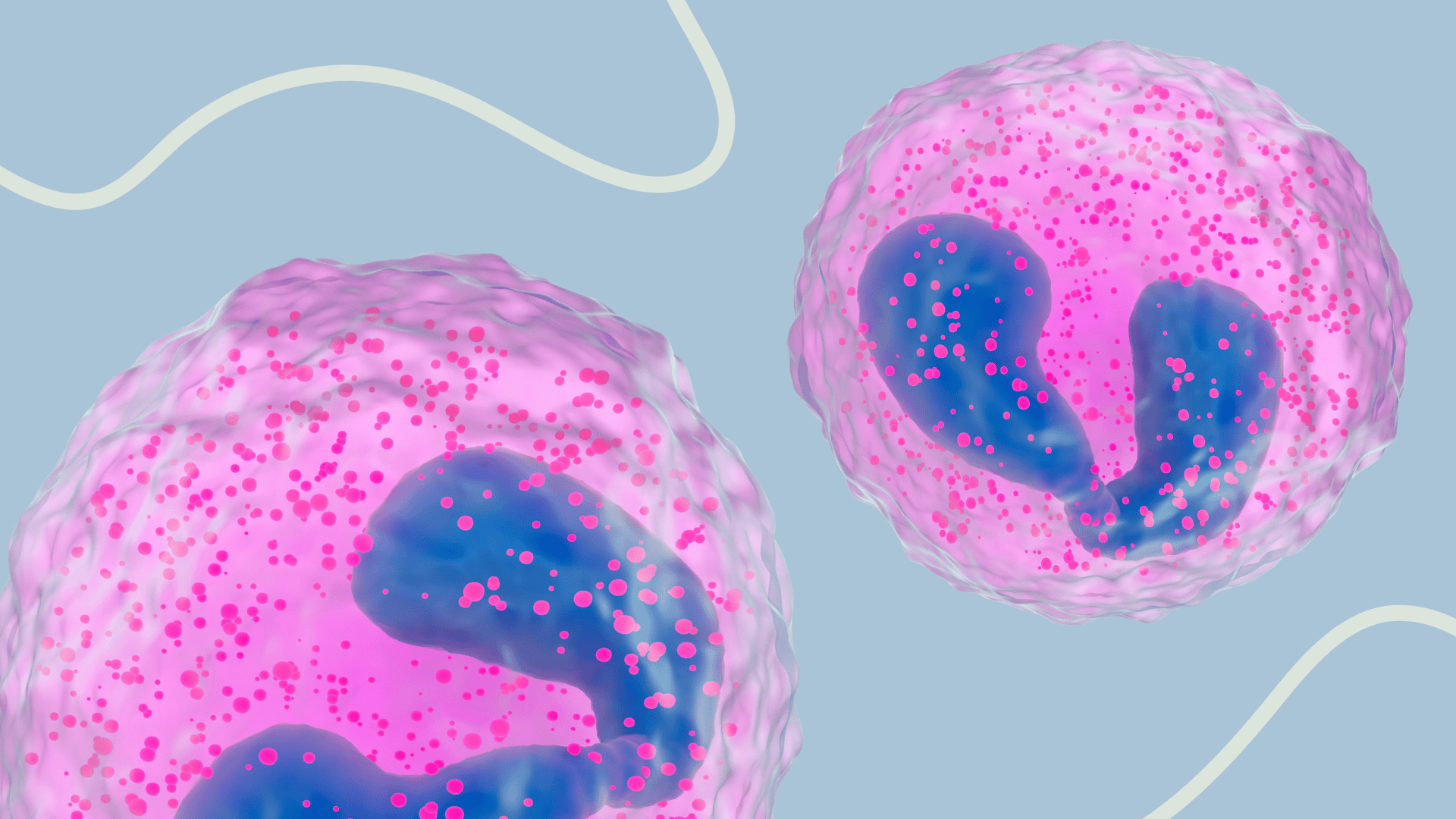Granulocyte Assays
With a background in granulocyte biology, our scientific team at RoukenBio are able to design bespoke assays to test your candidate therapeutics and to answer the questions you need answered.

Mast Cells
Mast cells are tissue-resident immune cells with key roles in inflammatory responses to parasitic infection and allergic disease. Residing at key tissue boundaries such as mucosal surfaces and blood vessels, mast cells are poised to respond to a variety of antigens including allergens and pathogens, where cross-linking of surface bound IgE triggers their degranulation, releasing lipid mediators, histamine and cytokines. Our experts can support your mast cell research, from employing model cell lines to mast cell differentiation from progenitors, we are ready to help.
Eosinophils
Found in both tissues and circulation, eosinophils function to combat multicellular parasites and to modulate inflammatory responses, particularly in allergic disease and asthma. Upon activation, eosinophils generate reactive oxygen species, release lipid mediators and degranulate to release cytotoxic granular proteins. The association of eosinophils with inflammation and tissue damage makes them an attractive target in a number of disease indications.
Basophils
The only circulating leukocyte to contain histamine, basophils share several characteristics with their tissue resident counterparts, mast cells. In addition to being activated by IgE-crosslinking, basophils can respond directly to pathogen-associated molecular patterns, releasing histamine and the Th2 cytokines IL-4 and IL-13 directing both anti-parasite and allergic reactions respectively. Being the rarest blood granulocyte, working with human basophils can be challenging. Speak to our experts and apply novel solutions to facilitate your basophil research.

Backed by brilliant minds
Our considerable knowledge will guide you through your journey.
SPEAK TO AN EXPERT